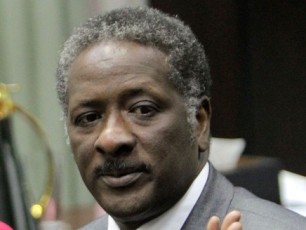Minister admits “bankruptcy” of Sudan’s government
June 14, 2012 (KHARTOUM) – The Sudanese Minister of Finance Ali Mahmoud told parliamentarians on Wednesday that the austerity measures the government is currently applying are a reflection of the level of “bankruptcy” in state coffers.

Inflation rose to 30 percent this month on food prices as the Sudanese pound reached new lows against the dollar in the black market.
In response, the government announced plans to lift fuel subsidies, saying it will save 2 billion USD annually to cover the budget deficit which, according to a government official quoted by Reuters, stands at 2.4 billion USD.
Many even within President Al-Bashir’s ruling National Congress Party (NCP) say they expect the ending of fuel subsidies to spark protests in light of the growing public discontent with worsening economic conditions.
Addressing an emergency parliament session devoted to discuss the economic situation, the finance minister said that the austerity measures taken to defuse the economic crisis are essentially a reflection of the “bankruptcy” plaguing government coffers.
“Lifting fuel subsidies and increases in commodity prices, these are dealings of a bankrupt state” he said.
The minister attributed failure to develop traditional sectors of production like agriculture to the high taxes which he said exceeded 30 percent. He also acknowledged that the level of poverty increased but he said that the government has plans to reduce it. “We cannot eradicate poverty but we can reduce it”
Ali Mahmoud revealed that increases in consumption had led the country to import greater amounts of certain commodities, saying that the country used to import 300,000 tons of wheat and now it imports 2 million.
Reacting to the minister’s statements, some parliamentarians criticized state policies and described them as corrupt.
“Whatever our institutions do, poverty will remain due to corruption” one parliamentarian named Hamdan Tirab said.
Tirab accused four government institutions he did not name of corruption. He further warned that the austerity measures would only breed more poverty.
Sudanese government officials tend to minimize the scale of corruption despite public perception to the contrary.
In a related context, a Sudanese political analyst has predicted that the ending of fuel subsidies will almost certainly lead to a popular uprising.
According to Omer Abdel Aziz, a professor of political sciences, there is a likelihood of 95 percent that the decision will spark a popular uprising when it comes into effect.
“The economic pressure has reached a degree that no citizen with dignity will accept” he said while addressing a symposium in the capital Khartoum on Wednesday.
He pointed out that the government preceded the lifting of fuel subsidies by devaluing the pound which already increased prices by 30 percent.
Abdel Aziz urged the government to re-think its decision. He further warned that in the event of street protests, the government must recognize them as protests against the economic situation and refrain from its typical allegations of collaborations and treason.
Sudanese opposition parties have already vowed to protest against the ending of fuel subsidies.
(ST)
